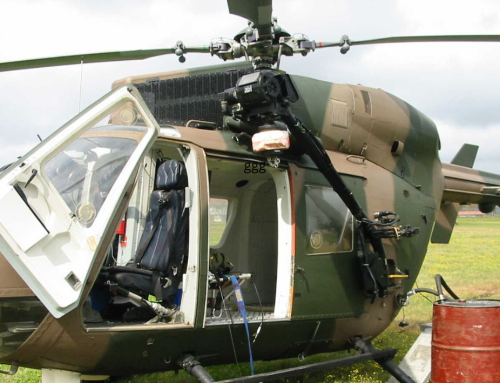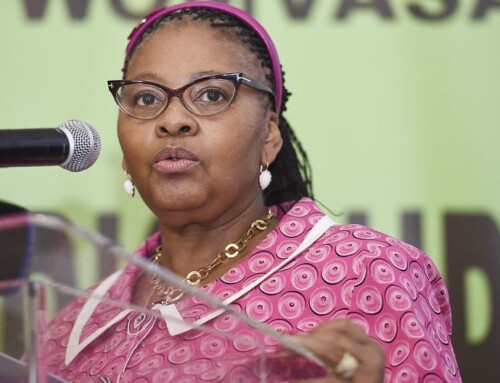Address by Mr B Holomisa, MP (UDM President) at the Civil Military Relations Conference 2016, CSIR International Convention Centre, Pretoria on 27 and 28 October 2016
· Programme Director,
· Chairperson of the Defence Force Service Commission, Professor Van Harte,
· Colleagues,
· Ladies and Gentlemen
1. Introduction
Allow me to join the Chairperson of the Defence Force Service Commission in thanking the sponsors who made this event possible.
As I was seated here yesterday, I was reminded of the time in 2009, when our soldiers marched on the Union Buildings. I was called on the day and requested by the President (through the then Minister of Defence, Ms Lindiwe Sisulu) to join other South Africans in trying to solve the problems raised by the aggrieved soldiers.
We have travelled a long distance since then.
A special word of thanks to our main sponsor, Saab, a Swedish company. As we all know Sweden played a leading role in supporting the struggle to liberate the country.
2. Apartheid and the military of yesteryear
Before the dawn of our new democracy, the Apartheid government had readily, and unscrupulously, used its armed forces to implement its schemes against the liberation movements, anti-apartheid activists and the homelands that collaborated with the liberation movements.
Heart wrenching testimony at the Truth and Reconciliation Commission (TRC) revealed that their missions included train massacres, hostel and township violence, the permanent isolation of freedom fighters and the murder of “enemies of the state” such as the Cradock Four.
I have personal experience of this and you can Google how many people from the South African security forces of the previous government, testified at the TRC about plots to assassinate me.
3. Civilian oversight in the reconstitution and management of the military after 1994
The amalgamation of the South African Defence Force, the Bantustan security forces, as well as the armed wings of the African National Congress, the Pan Africanist Congress of Azania and the Inkatha Freedom Party, was challenging in itself.
But, because of the Apartheid stigma attached to the military, and other paramilitary organisations, the new government placed disproportionate emphasis on civilian oversight.
South Africa ended up with several statutory bodies that form part of civilian oversight, such as:
1. the Ministry of Defence and Military Veterans,
2. the Portfolio Committee on Defence and Military Veterans,
3. the Joint Standing Committee on Defence,
4. the Joint Standing Committee on Intelligence,
5. our Commander in Chief, the President,
6. Parliament itself,
7. the Defence Force Service Commission (DFSC),
8. the Military Ombud, and then of course
9. the media.
We all agree that civilian oversight is essential, but it cannot be at the expense of the safety of South Africa’s borders and our citizens. Indeed, all the aforementioned bodies, must at all times ensure that the SANDF is in a constant state of readiness. This principle is internationally applied.
For us, the question should be: is it necessary for an out-and-out civilian to function as the military’s accounting officer as an additional step to safeguard civilian oversight?
There are several examples, in other countries, where this works well, but this is because of their culture of conscription. This means that the managers at the helm of the armed forces are steeped in military strategy and administration. This is enforced by the relevant lawmakers who are also products of the practice of conscription.
In my view, this arrangement does not work in South Africa.
Simple things like, delays in approving requisitions, disagreements on what the necessities are and a Secretary for Defence (SecDef) who is constantly abroad, adversely impacts on the SANDF’s capacity to fulfil its mandate. As a result of delays, and a lack of decisive leadership at SecDef-level, much needed funds are sometimes returned to National Treasury.
When we moved around the military bases across the country, as part of our work as the DFSC, we engaged with SANDF personnel. They made it abundantly clear that there is too much bureaucracy involved and that it is in conflict with military culture.
Given this situation, Parliament may have to review this area and perhaps consider making the Chief of the SANDF its accounting officer. This will eliminate the situation where Minster has to waste her time to mediate between the SecDef and the SANDF Chief, as she alluded to yesterday.
4. Parliament’s role in civilian oversight
All state institutions are accountable to Parliament and it is therefore incumbent upon it to ensure that the SANDF operates within the law and does abuse its power.
Parliament’s oversight work, however, does not start and end with legislation, it also includes the actual exercise of its influence on the organs of state that fall within this portfolio. It further includes monitoring, investigation and making recommendations on how defence challenges could be addressed.
5. Consultation with Parliament
Parliament must demand to be kept abreast of South Africa’s involvement in United Nations and the African Union’s peacekeeping efforts, as well as involvement in conflict situations before troops are deployed.
However, instead of being briefed in the House, we read of military deployments in the papers and then, after the fact, Parliamentarians would get the information in annual reports. This is not good enough.
To make matters worse, there are plenty examples where Parliament only gets roped in once things have gone wrong. This happened, for example, when the South African government, in 2013, assisted François Bozizé in the Central African Republic and thirteen of our paratroopers were killed in Bangui.
For Parliament to fulfil its oversight mandate, it is important that it has timeous and sufficient information. This demands transparency on the part of the Department of Defence, the Minister and the military’s top brass.
Side-lining Parliament is dangerous and it makes accountability impossible.
6. The Arms Deal: As a striking example of the lack of consultation
There is a strong impression that the Executive runs roughshod over Parliament. For instance, in 1999, the Department of Finance warned the responsible Cabinet Sub-Committee about the risks involved in the Arms Deal. Yet, they went ahead with the deal, in spite of this sound advice.
Parliament was never asked to sanction the deal. It had only exercised its oversight function in relation to the charges of corruption and conflicts of interest around the transactions.
Aside from the obvious problems, one also has to consider the Arms Deal’s shopping list, which consisted of boats, submarines, helicopters and fighter aircraft. These are the tools of the navy and the air force.
Why did the army, which operates on land, not get apparatus such as armoured trucks, personnel carriers and so forth?
Because of this ill-advised arms purchase, and constant budget cuts over the years, the army has backlogs in maintaining and updating their prime mission equipment.
On a side note: not only are South Africans still servicing the R70 billion debt, but we must also pay for the costs of the Seriti Commission of Inquiry that amounted to almost R140 million.
7. Dissatisfaction within the SANDF
Tension between defence management and military unions must be speedily alleviated. Parliament, as part of its oversight function, has a responsibility to harmonise these relationships.
Parliamentarians should also be concerned that, on the one hand, troops complain about commanders and, on the other hand, commanders complain about the lack of disciple within the ranks.
The conditions of employment of our servicemen and women are not up to scratch. There is a constant stream of complaints about the state of their equipment and poor training. Parliament has a role to play in addressing these matters.
8. The SANDF’s budget
There is, what has been described as, a persistent disconnect between the defence mandate, government’s expectations and the allocation of resources.
In addition, the Executive and National Treasury should not willy-nilly cut the military budget without applying their minds, because it appears as if there is a lack of understanding of what our defence priorities are. When statements are made such as: the staff complement of the SANDF should be reduced by 10,000 members, one cannot help but wonder on what research such decisions are based.
Despite socio-economic conditions, South Africa should earmark at least 2% of its GDP to the defence budget. This is in line with international standards.
If the question is asked: “Where should the money come from?”, we just have to think of the fact that government departments wasted R35,2 billion (in the 2015/16 financial year) on consultants, travel, catering and entertainment. The call by the Minister of Finance for financial discipline should be heeded and wasteful government spending must be stopped.
Political decision-makers should open their ears and listen when our military commanders warn that South Africa’s defence budget is insufficient. Parliament has a role to play in ensuring that the budget is adequate so that our defence requirements are accommodated.
9. Who should champion the SANDF’s cause?
Given Parliament’s oversight role, our Members of Parliament (MPs) are the logical people to fulfil this important function. The Portfolio Committee on Defence and Military Veterans should be more assertive in championing the cause of our servicemen and women.
In general, Parliamentarians must familiarise themselves with the challenges that the SANDF face by visiting our military bases. I think they will be shocked to see the state of disrepair of infrastructure and equipment; even looking at simple things such as the habitability of barracks.
MPs must also acquaint themselves with the work of the Defence Force Service Commission, so that they can exert pressure on the Minister and the Department of Defence and Military Veterans, to implement the recommendations of the Commission.
10. Conclusion
If we are to succeed in bridging the gap and advance civil military relations, in a manner that deepens democracy, we require a collective effort with an unwavering commitment to our country and her people.
Thank you




















